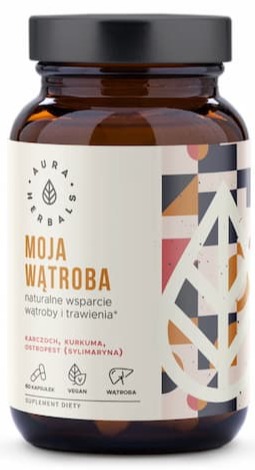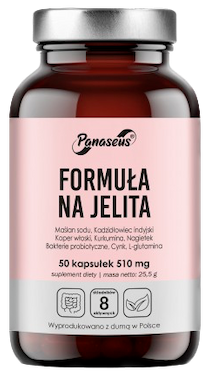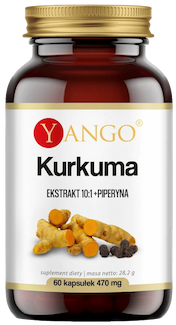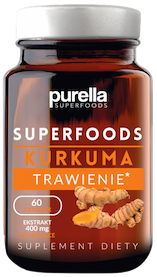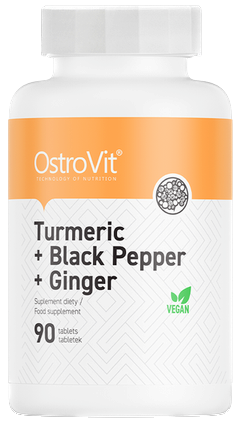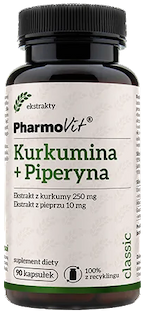Turmeric - what it is + properties, side effects, contraindications
Find out what interesting health-promoting properties turmeric has.


Learn more about our editorial process
.

Learn more about our editorial process
.

Learn more about our editorial process
.

Learn more about our editorial process
.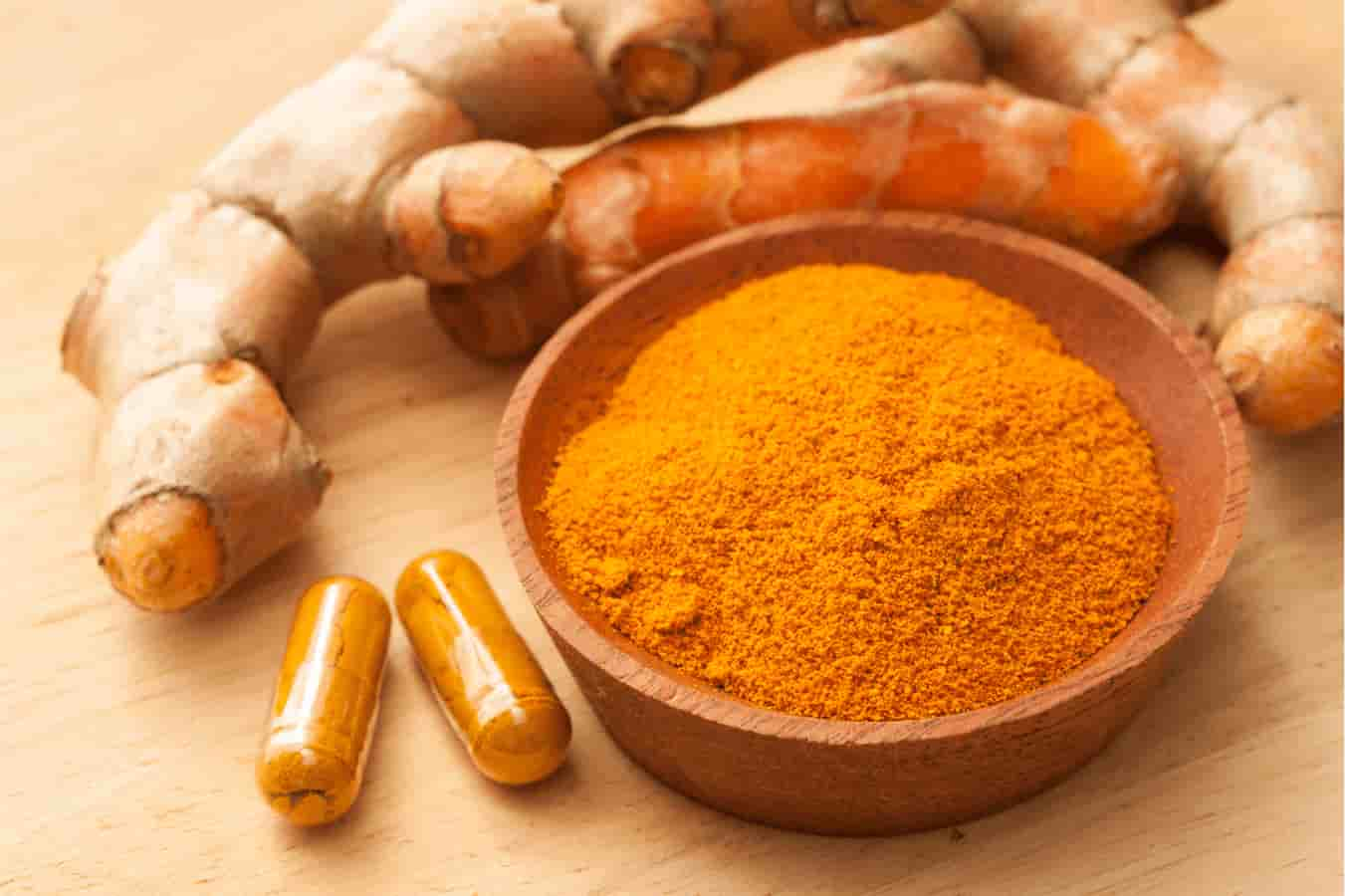
Why you can trust us
Articles on Natu.Care are written based on scientific research, data from government websites and other reliable sources. The texts are written in cooperation with doctors, nutritionists and other health and beauty experts. Articles are reviewed before publication and during significant updates.
.Learn more about our editorial process
.Information about advertisements
Content on Natu.Care may contain links to products from the sale of which we may receive a commission. When creating content, we adhere to high editorial standards and take care to be objective about the products discussed. The presence of affiliate links is not dictated by our partners, and we select the products we review ourselves completely independently.
.Learn more about our terms and Conditions
.Curcuma is known as the golden spice, due to its beautiful colour and colouring properties. This inconspicuous powder is a wealth of health-promoting nutritional value. Add this spice to your menu and enjoy the goodness of nature.
.Until now, you might not have been aware of the power that lies in turmeric. Yes, the exact one you keep in your spice cabinet. I guarantee you that after reading this text, you will reach for it even more readily and it will become a frequent addition to your menu.
From this article you will learn:
- What is turmeric and what health-promoting properties it has .
- How to use turmeric .
- What are the contraindications and side effects of turmeric .
See also:
- Curcumin tablets - which is best? .
- Adaptogens
- Creatine
- Berberine
- Wild rose
- Piperine
- Ashwagandha
- Ashwagandha dosage
- Indian ginseng
- Black cumin oil
Curcumin - what is it?
.Curcuma is a popular spice known primarily from Indian cuisineand. Other names for this plant include long spurge or Indian saffron. It grows mainly in India and China, but can be found in areas of Indonesia, Vietnam, the Philippines and Thailand.
It is part of the popular curry spice blend and gives it its characteristic yellow colour - hence it is known as the golden spiceand. Turmeric has been used for thousands of years in Indian and Chinese medicine to treat a variety of conditions.
Turmeric or curcumin?
.What makes turmeric different from curcumin? Curcuminoids are natural polyphenolic compoundsand extracted from turmeric. Curcumin is one of these compounds and is responsible for most of the health-promoting properties of this plant. It exhibits strong anti-inflammatory and antioxidant effectsand.
Nutritional values of ground turmeric
.See why you should include turmeric in your menu. First of all, it's a mine of valuable nutrientsand.
.Curcumin is used as a natural food colouring. You will encounter it under the symbol E100. It has strong skin and clothing staining properties, so be careful when using it..
 .
.
Julia SkrajdaDietitian
.Learn more about the vitamins and minerals contained in turmeric from the articles:
Curcumin as a dietary supplement
.Turmeric extract contains a higher concentration of curcumin than that found naturally in food. There will be more curcumin in a small capsule than in a rhizome. Turmeric supplements will have better bioavailability of curcumin if you combine them with piperine. Look for products in which both ingredients are present.
Follow the manufacturer's recommended daily servings. Before starting supplementation, consult your doctor - especially if you have a chronic heart condition, joint disease or blood clotting problems.
Consult with your doctor.
Aura Herbals My Liver
Product description
Aura Herbals My Liver is a dietary supplement thatós composed of a synergistic combination of extractsós and substances to support liver health. It acts as a protective shield thanks to its cleansing, antioxidant and anti-inflammatory properties. By strengthening the cell membranesór, the product facilitates the regeneration of damaged liver tissues, maximising liver performance.
The supplement benefits from a synergy of ingredientsós, such as turmeric and artichoke, which work togetheróly to support liver functions such as detoxification, neutralising free radicalsós, and supporting healthy fat synthesis and transport.
Aura Herbals Moja Wątroba is recommended for people whoóre exposed to daily stress, environmental or food toxins, as well as those seeking to improve overall liver health.
Pros and cons
Aura Herbals My Liver is a dietary supplement thatós composed of a synergistic combination of extractsós and substances to support liver health. It acts as a protective shield thanks to its cleansing, antioxidant and anti-inflammatory properties. By strengthening the cell membranesór, the product facilitates the regeneration of damaged liver tissues, maximising liver performance.
The supplement benefits from a synergy of ingredientsós, such as turmeric and artichoke, which work togetheróly to support liver functions such as detoxification, neutralising free radicalsós, and supporting healthy fat synthesis and transport.
Aura Herbals Moja Wątroba is recommended for people whoóre exposed to daily stress, environmental or food toxins, as well as those seeking to improve overall liver health.
Additional information
Aura Herbals My Liver is a dietary supplement thatós composed of a synergistic combination of extractsós and substances to support liver health. It acts as a protective shield thanks to its cleansing, antioxidant and anti-inflammatory properties. By strengthening the cell membranesór, the product facilitates the regeneration of damaged liver tissues, maximising liver performance.
The supplement benefits from a synergy of ingredientsós, such as turmeric and artichoke, which work togetheróly to support liver functions such as detoxification, neutralising free radicalsós, and supporting healthy fat synthesis and transport.
Aura Herbals Moja Wątroba is recommended for people whoóre exposed to daily stress, environmental or food toxins, as well as those seeking to improve overall liver health.
Product description
Using Panaseus Digestive Formula can help improve intestinal health by supporting the intestinal barrier, reducing inflammation, protecting against damage and restoring healthy intestinal microflora.
Experience a rós difference in gut function with plant extracts, amino acids and probiotic bacteria.
Pros and cons
Using Panaseus Digestive Formula can help improve intestinal health by supporting the intestinal barrier, reducing inflammation, protecting against damage and restoring healthy intestinal microflora.
Experience a rós difference in gut function with plant extracts, amino acids and probiotic bacteria.
Additional information
Using Panaseus Digestive Formula can help improve intestinal health by supporting the intestinal barrier, reducing inflammation, protecting against damage and restoring healthy intestinal microflora.
Experience a rós difference in gut function with plant extracts, amino acids and probiotic bacteria.
YANGO Curcumin
Product description
Turmeric extract combined with black pepper extract, containing piperine, which increases the bioavailability of active ingredients.
Turmeric may naturally support the proper functioning of the liver. Additionally, it may help maintain a healthy cardiovascular system and appropriate cholesterol levels in the blood.
Black pepper supports healthy digestion.
Pros and cons
Pros:
- Easy-to-swallow capsules.
- Standardization of turmeric root extract indicates high-quality raw material.
- Piperine enhances the absorption of turmeric.
- Product suitable for vegans.
Cons:
- None
Additional information
Do not use in cases of bile duct obstruction – curcumin increases bile production.
Does not contain shellfish, eggs, fish, nuts, soy, dairy ingredients, celery, mustard, sesame.
Product description
A combination of turmeric and black pepper extract, or piperine, in the form of easy-to-swallow, vegan capsules. The product effectively supports liver function and fat digestionós, thus reducing unpleasant gastrointestinal discomforts.
Pros and cons
A combination of turmeric and black pepper extract, or piperine, in the form of easy-to-swallow, vegan capsules. The product effectively supports liver function and fat digestionós, thus reducing unpleasant gastrointestinal discomforts.
Additional information
A combination of turmeric and black pepper extract, or piperine, in the form of easy-to-swallow, vegan capsules. The product effectively supports liver function and fat digestionós, thus reducing unpleasant gastrointestinal discomforts.
A combination of turmeric and black pepper extract, or piperine, in the form of easy-to-swallow, vegan capsules. The product effectively supports liver function and fat digestionós, thus reducing unpleasant gastrointestinal discomforts.
Product description
Preparation with standardised extracts with herbal ingredients thatóre positively influencing the functioning of the body. Curcumin improves digestion, has an antioxidant effect and supports jointós health. Ginger helps to reduce inflammationólation, has an anti-bioactive effect and is rich in antioxidants. Piperine increases the bioavailability of someós food substances, has anti-inflammatory effects and increases thermogenesis in the body.
Pros and cons
Preparation with standardised extracts with herbal ingredients thatóre positively influencing the functioning of the body. Curcumin improves digestion, has an antioxidant effect and supports jointós health. Ginger helps to reduce inflammationólation, has an anti-bioactive effect and is rich in antioxidants. Piperine increases the bioavailability of someós food substances, has anti-inflammatory effects and increases thermogenesis in the body.
Additional information
Preparation with standardised extracts with herbal ingredients thatóre positively influencing the functioning of the body. Curcumin improves digestion, has an antioxidant effect and supports jointós health. Ginger helps to reduce inflammationólation, has an anti-bioactive effect and is rich in antioxidants. Piperine increases the bioavailability of someós food substances, has anti-inflammatory effects and increases thermogenesis in the body.
Pharmovit Curcumin + Piperine
Product description
Curcumin + Piperine Pharmovit is a dietary supplement that supports liver health, fatódigestion, joints and the immune system. Long Oyster Extract provides up to 237.50 mg of curcumin, while Black Pepper Fruit Extract contains 9.50 mg of piperine.
The supplement has no fillers or colourings
.Pros and cons
Curcumin + Piperine Pharmovit is a dietary supplement that supports liver health, fatódigestion, joints and the immune system. Long Oyster Extract provides up to 237.50 mg of curcumin, while Black Pepper Fruit Extract contains 9.50 mg of piperine.
The supplement has no fillers or colourings
.Additional information
Curcumin + Piperine Pharmovit is a dietary supplement that supports liver health, fatódigestion, joints and the immune system. Long Oyster Extract provides up to 237.50 mg of curcumin, while Black Pepper Fruit Extract contains 9.50 mg of piperine.
The supplement has no fillers or colourings
.Curcumin + Piperine Pharmovit is a dietary supplement that supports liver health, fatódigestion, joints and the immune system. Long Oyster Extract provides up to 237.50 mg of curcumin, while Black Pepper Fruit Extract contains 9.50 mg of piperine.
The supplement has no fillers or colourings
.{ product:6m9HrCpWoRsFZipwbSOktU }}
{ product:10Iy4COvcvaEGbzIYB4IUJ }}
How much turmeric a day?
.In research studies, patients are usually given 500-2000 mg of turmeric per day. The most commonly used form is curcumin extracts, the amount of which is much higher than that found naturally in the rhizomes.
Long-term consumption of large amounts of curcumin is not recommended, as there is a lack of research to confirm its safety. The World Health Organisation (WHO) has indicated 3 mg/kg body weight as a safe, acceptable daily intakeand..
 .
.
Witold Tomaszewskidoctor of medical sciences
.Curcumin - medicinal properties
.Curcumin may provide the following health benefits:
.- Acts as an anti-inflammatory and antioxidantand. .
- Promotes nervous system function . .
- Promotes the treatment of rheumatoid arthritis . .
- Provides positive effects on lipid metabolism . .
- Protects the cardiovascular system . .
- Protects the digestive system . .
- Reduces symptoms of post-workout muscle soreness . .
- May reduce the risk of heart disease and cancer . .
- May support treatment of Alzheimer's disease . .
- May support the treatment of depression . .
- May have an effect on slowing down the body's aging process . .
- May relieve symptoms of premenstrual syndrome . .
- May support weight loss . .
What exactly does the research suggest?
.Anti-inflammatory and antioxidant effects
.Prolonged inflammation promotes the development of diseases such as myiasis , cancer , obesity . The curcumin in turmeric is a bioactive substance that helps fight inflammation. Thanks to its antioxidant action, it neutralises free radicals. This prevents many diseases and can slow down the signs of ageing.
Nerve system support
.Curcumin increases the concentration of the protein BDNFand. This is a protein secreted by neurons that is responsible for processes related to memory and learning. The high amount of BDNF stimulated by curcumin increases the growth of new neurons and may help to combat various degenerative processes in the brain (e.g. Alzheimer's disease) .
Support for the treatment of rheumatoid arthritis
.Rheumatoid arthritis (RA) is a serious condition that negatively affects a patient's quality of life and limits activityand. One study suggests that curcumin may be more effective in treating RA than anti-inflammatory drugs. Furthermore, its consumption does not cause as many side effects as drugs for the condition.
See also:
Effects on lipid metabolism
.Correct levels of total cholesterol, HDL ('good') cholesterol and LDL ('bad') cholesterol are important - especially in the prevention of cardiovascular disease. In studies curcumin has been shown to lower total cholesterol, LDL cholesterol and triglycerides . It can be used as a safe means of reducing the risk of metabolic and cardiovascular disease .
This positive effect on lipid metabolism is important for genetically burdened individuals, those with diagnosed familial hypercholesterolaemia and those with hypertension.
Cardiovascular protection
.Curcumin prevents the deposition of fat molecules on the membrane lining the blood vesselsand. Its anti-inflammatory and antioxidant properties improve the process of oxygen distribution in the bloodstream. As a result, it can prevent ischaemic heart disease.
Important:
Drinking turmeric vs high blood pressure medication is an important aspect to avoid harming yourself. Turmeric thins the blood and can exacerbate the effects of anticoagulant drugs. Not Drinking turmeric is not recommended if you suffer from cardiovascular disease.
Digestive system support
.Dosing curcumin at 50 mg/kg body weight stimulates the secretion of mucin, which coats the stomach walls with a protective layer. Clinical studies suggest that this compound prevents digestive disorders associated with vomiting, bloating and belching. It also shows anti-ulcer effectsand.
Curcumin has a beneficial effect on liver function - it acts as a choleretic and cholagogue. Protects liver cells when exposed to hepatotoxic agents, e.g. alcohol, paracetamol.
.Alleviation of post-workout muscle soreness
.Recent analyses of studiesand suggest that curcumin supplementation may improve some aspects of post-workout muscle soreness. After exercise (especially if you are doing a particular exercise for the first time or training very intensely), muscle damage and soreness occurs. This is a natural occurrence. It is not dangerous - but persistent in its symptoms.
Systematically consumed curcumin relieves the symptoms of post-workout muscle soreness and has the effect of making joints more flexible and increasing strength. Do you train regularly? Be sure to think about enriching your diet with turmeric or supplementing with it - it is helpful for athletes.
Cancer and heart disease prevention
.Researchand on curcumin suggests that it may contribute to cancer cell death and reduce the spread of cancer cells (known as metastasis) in the body. Curcumin interacts with cancer cells at a molecular leveland, which may help prevent and perhaps even treat cancer.
According to the World Health Organisation (WHO) , heart disease is the most common cause of death worldwide. Dysfunction of the endothelium (the lining of blood vessels) is a major factor leading to the development of heart disease . Research suggests that curcumin may improve endothelial function and prevent heart disease .
Treatment of Alzheimer's disease
.Unfortunately, there is still no cure for Alzheimer's disease, which is the most common form of dementiaand. This is why preventing its onset is so important. Researchand suggests that curcumin crosses the blood-brain barrier, so it helps to treat inflammation and also supports nerve cells that are vulnerable to oxidative damage.
Treatment of depression
.Depression is associated with reduced levels of the protein BDNF (see paragraph on the nervous system). Curcumin increases its concentration and may have a significant effect on increasing levels of the brain neurotransmitters serotonin and dopamineand.
One study involved 60 people diagnosed with depression. Patients were divided into 3 groups to use:
respectively.- an antidepressant medication, .
- 1 g of a dietary supplement containing curcumin, .
- an antidepressant drug and 1 g of a supplement containing curcumin, .
After 6 weeks of use, curcumin led to an improvement in mood at a similar level to that of the antidepressant drugand. The group that took both the drug and curcumin reported the best results.
This is a very promising result that gives hope to people struggling with depression for support beyond pharmacological treatment.
Slowing the body's ageing process
.Thanks to its antioxidant and anti-inflammatory properties, curcumin can successfully delay the body's ageing processand. Researchers suggest that nanoformulation (the release of substances in a more precise manner) of curcumin may act as an effective anti-ageing agent, as well as wound healing . Will we see a revolution in the cosmetics market in a few years' time?
Reduce symptoms of premenstrual syndrome (PMS)
.PMS is a combination of mental, physical and behavioural changes that negatively affect menstruating women. The unpleasant symptoms interfere with daily functioning and significantly lower mood.
Researchand on a group of 70 women suggests that turmeric has the potential to alleviate the severity of PMS symptoms. This is due to the anti-inflammatory effects of turmeric and its involvement in the modulation of neurotransmitters.
Promoting weight loss
.Taking turmeric with piperine may promote weight lossand. Studiesand conducted on animals suggest that the compound may reduce fat gain and increase insulin sensitivity.
The results of a 2015 studyand conducted on a group of 44 people is also promising. For 30 days, participants in the study were given 800 mg of curcumin and 8 mg of piperine. This led to a significant reduction in body weight, body mass index (BMI) and waist and hip circumference.
Learn what other ingredients can support weight loss:
.What does turmeric help with?
.Turmeric, thanks to its curcumin content, helps with inflammation in the body and supports the nervous, cardiovascular and immune systems. Turmeric can help treat arthritis and prevent the development of many diseases. It delays the ageing process and may reduce the risk of cancer.
Curcumin and piperine, or how to support curcumin absorption
.Curcumin, which is responsible for most of turmeric's health-promoting properties, is poorly absorbed into the bloodstreamand. As a result, it is difficult to benefit from its full potential. Research confirms that combining curcumin with piperine (the active ingredient in pepper) increases curcumin absorption by up to 2000% !
How is this possible? Piperine makes it easier for curcumin to pass through the intestinal wall and into the bloodstream and can slow down the metabolism of curcumin in the liver , increasing its concentration in the blood. As a result, combining curcumin with piperine increases its potential health benefits.
Curcumin - how to use?
.Curcumin can be used as a spice (up to 3 g per day, or 1 teaspoon) in your favourite drinks, yoghurts or dishes, or consumed from dietary supplements (up to 2000 mg per day). Nutritionist Julia Skrajda advises how to increase your daily turmeric intake with diet and safe supplementation.
Turmeric as a spice
.Make room in your kitchen cupboard for a container of turmeric today. How do you smuggle it into your eating regimen?
- Curcumin dissolves well in fat, so it's worth adding it to, for example, salad with avocado and nuts, soups with coconut milk or homemade hummusand.
- Add a pinch of turmeric to coffee, tea with black pepper or a smoothie.
- Drink turmeric-infused water once a day. One teaspoon of turmeric and a pinch of black pepper per glass of warm water - preferably after a meal.
- Take advantage of turmeric's colouring potential - serve your guests a feast (including for the eyes) with a vivid yellow rice or tofu dish.
- Surprise your taste buds by adding turmeric to popcorn, homemade baked potatoes or crisps. .
- Tradition... in a new edition. Add turmeric to broths or marinades for meats. .
Golden milk recipe
.Pease your taste buds or surprise your loved ones with a healthy, traditional Indian drink.
Ingredients for 1 serving:
.- 250 ml milk/vegetable drink, .
- 1 teaspoon turmeric, .
- a pinch of cayenne pepper, .
- 1-2 tablespoons honey, .
- 1 teaspoon cinnamon, .
- 1-2 cm grated ginger root, .
- 1/2 teaspoon butter or coconut oil, .
Making:
.Pour turmeric, cinnamon, pepper and grated ginger into a saucepan. Pour in the milk/vegetable drink and heat - but don't bring to the boil! Add the honey and butter/coconut oil. Stir until the ingredients are combined... and you're done!
.Contraindications to the use of turmeric
.Contraindications to the use of turmeric include: pregnancy, breastfeeding, chemotherapy, gallbladder disease, liver disease, blood clotting problems, use of high blood pressure medications, anticoagulants and anti-diabetic medicationsand.
Contraindications mainly apply to dietary supplements, as some preparations contain other active ingredients in addition to high doses of turmeric, which should be watched out for.
The use of turmeric as a spice in cooking is safe if you use it in moderation. However, if you choose to supplement, consult with your doctor to avoid dangerous interactions and unpleasant side effects.
Turmeric is not a good choice.
Curcumin and breastfeeding
.Curcumin can be consumed while breastfeeding. It is best chosen in the form of a spice and in moderation. A 2016 review of research indicates that in some cultures this turmeric-spice is used as a galactagogue (increases milk production). Dietary supplements are not recommended.
Why?
Because turmeric supplements often contain high daily servings of curcumin and other active ingredients that may affect the mother and her baby. Advise your doctor before consuming turmeric preparations.
.Drinking turmeric side effects
.Side effects of excessive consumption of turmeric (curcumin) include nausea, diarrhoea, heartburn, abdominal pain and headacheand. These symptoms appear within 1-4 hours after consuming too much turmeric. Its use should then be discontinued, and a doctor should be consulted if the condition worsens.
Both turmeric and its main active ingredient, curcumin, are generally considered safe and unlikely to cause serious side effectsand.
Some people may experience unpleasant symptoms - this usually occurs when too many turmeric-based supplements are consumed or when dishes are over-spiced. Drinking turmeric water is popular. This inconspicuous drink can, over time, act as a stomach irritant - especially when consumed on an empty stomach..
 .
.
Witold Tomaszewskidoctor of medical sciences
.
Drinking turmeric - side effects
Daily drinking of turmeric in healthy amounts does not cause side effects. Do not overdo the amount and do not consume more than 1 teaspoon (3 g) per day. If you suffer from stomach ailments (e.g. ulcers or gastritis) be cautious.
See also articles on health:
.- Thyroid testing
- Cortisol testing
- Blood tests
- Liver
- Fatty (oily) liver
- Hepatic tests .
- How to take care of your mental health .
Summary
.The next time you use turmeric in a meal, you will already look at this spice differently. Recall the most important information then and share it with your loved ones!
- Curcumin (or long spice) is a popular spice, and curcumin is responsible for most of its health-promoting properties.
- Curcumin has been shown to have anti-inflammatory and antioxidant effects, and may support the treatment of diseases related to the nervous system, joints, and may also prevent the development of cancer.
- It is worth including turmeric in your diet: drinking water with turmeric, enhancing the flavour of your meals and surprising your guests with the colouring of various foods, such as rice or soups. .
- Curcumin is absorbed better in the presence of piperine or fats. .
- Contraindications to the use of turmeric include: pregnancy, breastfeeding, chemotherapy, gall bladder and liver disease, blood clotting problems, use of high blood pressure medication, anticoagulants, antidiabetic drugs. .
FAQ
.Is drinking turmeric water healthy?
.Yes, drinking turmeric water is healthy. Usually, a teaspoon of turmeric and a pinch of black pepper per glass of warm water is used. Such a concoction can be consumed at any time of the day. If you suffer from stomach ailments or have a sensitive digestive system, it is better to consume such a drink after a meal.
In ayurveda (an ancient Indian healing art), not only water with turmeric is used, but also milk, coffee or tea with this spice. If such drinks don't appeal to you, consider turmeric in tablets.
Is turmeric bad for your kidneys?
.Yes, turmeric can harm the kidneys because it has a high content of oxalates, which can bind to calcium and cause kidney stones to form. If you have a diagnosed kidney disease, consult your doctor before starting turmeric supplementation.
Does turmeric have weight loss properties?
.Yes, turmeric combined with piperine can be helpful for weight loss. Remember that supplementation alone will not lose excess weight. You need a calorie deficit in your diet to lose weight, and you will achieve the best results when calorie reduction is combined with your favourite physical activity.
Can turmeric be eaten every day?
.Yes, you can eat turmeric every day, but in reasonable amounts. Just make sure you stick to the recommended doses and it will definitely bring you many health benefits. It's worth using it as a spice, adding a pinch to water or supplementing with curcumin tablets.
Is turmeric harmful?
.Yes, turmeric can be harmful if used in excessive amounts. Too much consumption of turmeric can cause a number of unpleasant discomforts such as nausea and abdominal pain. Excess turmeric can also cause the formation of kidney stones.
Is turmeric a diuretic?
.Yes, turmeric is diuretic. Therefore, it is not recommended to consume it before bedtime to avoid waking up at night and disrupting sleep hygiene and bedtime rhythm.
Does turmeric stain teeth yellow?
.Yes, turmeric can stain teeth yellow. But it is not the colour of the food that stains the teeth, but the acidity that opens the pores in the tooth enamel, which causes discolouration. Strong enamel does not discolour. Limit acidic foods, drinks and remember to have check-ups with your dentist.
Resources
.See all
.Akbari, M., Lankarani, K. B., Tabrizi, R., Ghayour-Mobarhan, M., Peymani, P., Ferns, G., Ghaderi, A., & Asemi, Z. (2019). The Effects of Curcumin on Weight Loss Among Patients With Metabolic Syndrome and Related Disorders: A Systematic Review and Meta-Analysis of Randomized Controlled Trials. Frontiers in Pharmacology, 10. https://www.frontiersin.org/articles/10.3389/fphar.2019.00649
Amalraj, A., Pius, A., Gopi, S., & Gopi, S. (2017). Biological activities of curcuminoids, other biomolecules from turmeric and their derivatives - A review. Journal of Traditional and Complementary Medicine, 7(2), 205-233. https://doi.org/10.1016/j.jtcme.2016.05.005
Astinfeshan, M., Rasmi, Y., Kheradmand, F., Karimipour, M., Rahbarghazi, R., Aramwit, P., Nasirzadeh, M., Daeihassani, B., Shirpoor, A., Gholinejad, Z., & Saboory, E. (2019). Curcumin inhibits angiogenesis in endothelial cells using downregulation of the PI3K/Akt signaling pathway. Food Bioscience, 29, 86-93. https://doi.org/10.1016/j.fbio.2019.04.005
Beba, M., Mohammadi, H., Clark, C. C. T., & Djafarian, K. (2022). The effect of curcumin supplementation on delayed-onset muscle soreness, inflammation, muscle strength, and joint flexibility: A systematic review and dose-response meta-analysis of randomized controlled trials. Phytotherapy Research, 36(7), 2767-2778. https://doi.org/10.1002/ptr.7477
Chandran, B., & Goel, A. (2012). A Randomized, Pilot Study to Assess the Efficacy and Safety of Curcumin in Patients with Active Rheumatoid Arthritis. Phytotherapy Research, 26(11), 1719-1725. https://doi.org/10.1002/ptr.4639
Chen, M., Du, Z.-Y., Zheng, X., Li, D.-L., Zhou, R.-P., & Zhang, K. (2018). Use of curcumin in diagnosis, prevention, and treatment of Alzheimer's disease. Neural Regeneration Research, 13(4), 742. https://doi.org/10.4103/1673-5374.230303
Curcumin, inflammation, ageing and age-related diseases | Immunity & Ageing | Full Text. (n.d.). Retrieved March 14, 2023, from https://immunityageing.biomedcentral.com/articles/10.1186/1742-4933-7-1
Gupta, S. C., Sung, B., Kim, J. H., Prasad, S., Li, S., & Aggarwal, B. B. (2013). Multitargeting by turmeric, the golden spice: From kitchen to clinic. Molecular Nutrition & Food Research, 57(9), 1510-1528. https://doi.org/10.1002/mnfr.201100741
Hewlings, S. J., & Kalman, D. S. (2017). Curcumin: A Review of Its Effects on Human Health. Foods, 6(10), Article 10. https://doi.org/10.3390/foods6100092
JCI - Inflammatory links between obesity and metabolic disease. (n.d.). Retrieved 15 March 2023, from https://www.jci.org/articles/view/57132
Khayat, S., Fanaei, H., Kheirkhah, M., Moghadam, Z. B., Kasaeian, A., & Javadimehr, M. (2015). Curcumin attenuates severity of premenstrual syndrome symptoms: A randomized, double-blind, placebo-controlled trial. Complementary Therapies in Medicine, 23(3), 318-324. https://doi.org/10.1016/j.ctim.2015.04.001
Kim, D.-C., Kim, S.-H., Choi, B.-H., Baek, N.-I., Kim, D., Kim, M.-J., & Kim, K.-T. (2005). Curcuma longa Extract Protects against Gastric Ulcers by Blocking H2 Histamine Receptors. Biological and Pharmaceutical Bulletin, 28(12), 2220-2224. https://doi.org/10.1248/bpb.28.2220
Li, H., Sureda, A., Devkota, H. P., Pittalà, V., Barreca, D., Silva, A. S., Tewari, D., Xu, S., & Nabavi, S. M. (2020). Curcumin, the golden spice in treating cardiovascular diseases. Biotechnology Advances, 38, 107343. https://doi.org/10.1016/j.biotechadv.2019.01.010
Li, L., & Leung, P. S. (2017). Chapter 13-Pancreatic Cancer, Pancreatitis, and Oxidative Stress. In J. Gracia-Sancho & J. Salvadó (Ed.), Gastrointestinal Tissue (pp. 173-186). Academic Press. https://doi.org/10.1016/B978-0-12-805377-5.00012-6
Makhija, P. P., Shigli, K., & Avinashe, V. (2016). Evaluating the efficacy of denture cleansing materials in removal of tea and turmeric stains: An in vitro study. Indian Journal of Dental Research, 27(5), 528. https://doi.org/10.4103/0970-9290.195643
Marchio, P., Guerra-Ojeda, S., Vila, J. M., Aldasoro, M., Victor, V. M., & Mauricio, M. D. (2019). Targeting Early Atherosclerosis: A Focus on Oxidative Stress and Inflammation. Oxidative Medicine and Cellular Longevity, 2019, e8563845. https://doi.org/10.1155/2019/8563845
Menon, V. P., & Sudheer, A. R. (2007). ANTIOXIDANT AND ANTI-INFLAMMATORY PROPERTIES OF CURCUMIN. IN B. B. Aggarwal, Y.-J. Surh, & S. Shishodia (Eds.), The Molecular Targets and Therapeutic Uses of Curcumin in Health and Disease (Vol. 595, pp. 105-125). Springer US. https://doi.org/10.1007/978-0-387-46401-5_3
Ng, T. K. S., Ho, C. S. H., Tam, W. W. S., Kua, E. H., & Ho, R. C.-M. (2019). Decreased Serum Brain-Derived Neurotrophic Factor (BDNF) Levels in Patients with Alzheimer's Disease (AD): A Systematic Review and Meta-Analysis. International Journal of Molecular Sciences, 20(2), Article 2. https://doi.org/10.3390/ijms20020257
Phase IIa Clinical Trial of Curcumin for the Prevention of Colorectal Neoplasia | Cancer Prevention Research | American Association for Cancer Research. (n.d.). Retrieved March 15, 2023, from https://aacrjournals.org/cancerpreventionresearch/article/4/3/354/49563/Phase-IIa-Clinical-Trial-of-Curcumin-for-the
Prasad, S., & Aggarwal, B. B. (2011). Turmeric, the Golden Spice: From Traditional Medicine to Modern Medicine. IN I. F. F. Benzie & S. Wachtel-Galor (Eds.), Herbal Medicine: Biomolecular and Clinical Aspects (2nd ed.). CRC Press/Taylor & Francis. http://www.ncbi.nlm.nih.gov/books/NBK92752/
Rafiee, S., Bagherniya, M., Askari, G., Sathyapalan, T., Jamialahmadi, T., & Sahebkar, A. (2021). The Effect of Curcumin in Improving Lipid Profile in Patients with Cardiovascular Risk Factors: A Systematic Review of Clinical Trials. IN P. C. Guest (Ed.), Studies on Biomarkers and New Targets in Aging Research in Iran: Focus on Turmeric and Curcumin (pp. 165-177). Springer International Publishing. https://doi.org/10.1007/978-3-030-56153-6_10
Sanmukhani, J., Satodia, V., Trivedi, J., Patel, T., Tiwari, D., Panchal, B., Goel, A., & Tripathi, C. B. (2014). Efficacy and Safety of Curcumin in Major Depressive Disorder: A Randomized Controlled Trial. Phytotherapy Research, 28(4), 579-585. https://doi.org/10.1002/ptr.5025
Santos-Parker, J. R., Strahler, T. R., Bassett, C. J., Bispham, N. Z., Chonchol, M. B., & Seals, D. R. (2017). Curcumin supplementation improves vascular endothelial function in healthy middle-aged and older adults by increasing nitric oxide bioavailability and reducing oxidative stress. Aging, 9(1), 187-208. https://doi.org/10.18632/aging.101149
Sikora, E., Scapagnini, G., & Barbagallo, M. (2010). Curcumin, inflammation, ageing and age-related diseases. Immunity & Ageing, 7(1), 1. https://doi.org/10.1186/1742-4933-7-1
Tang, M., Larson-Meyer, D. E., & Liebman, M. (2008). Effect of cinnamon and turmeric on urinary oxalate excretion, plasma lipids, and plasma glucose in healthy subjects. The American Journal of Clinical Nutrition, 87(5), 1262-1267. https://doi.org/10.1093/ajcn/87.5.1262
The top 10 causes of death. (n.d.). Retrieved March 15, 2023, from https://www.who.int/news-room/fact-sheets/detail/the-top-10-causes-of-death
Editorials
Meet the team


Editor
Graduate of Journalism and Artes Liberales at the University of Warsaw. Since 2017, he has been working with the biggest portals in Poland and abroad as an editor. Previously worked for 3 years in one of the leading pharmaceutical companies - he knows the health and beauty industry inside out. In his free time, he most enjoys playing tennis or skiing.
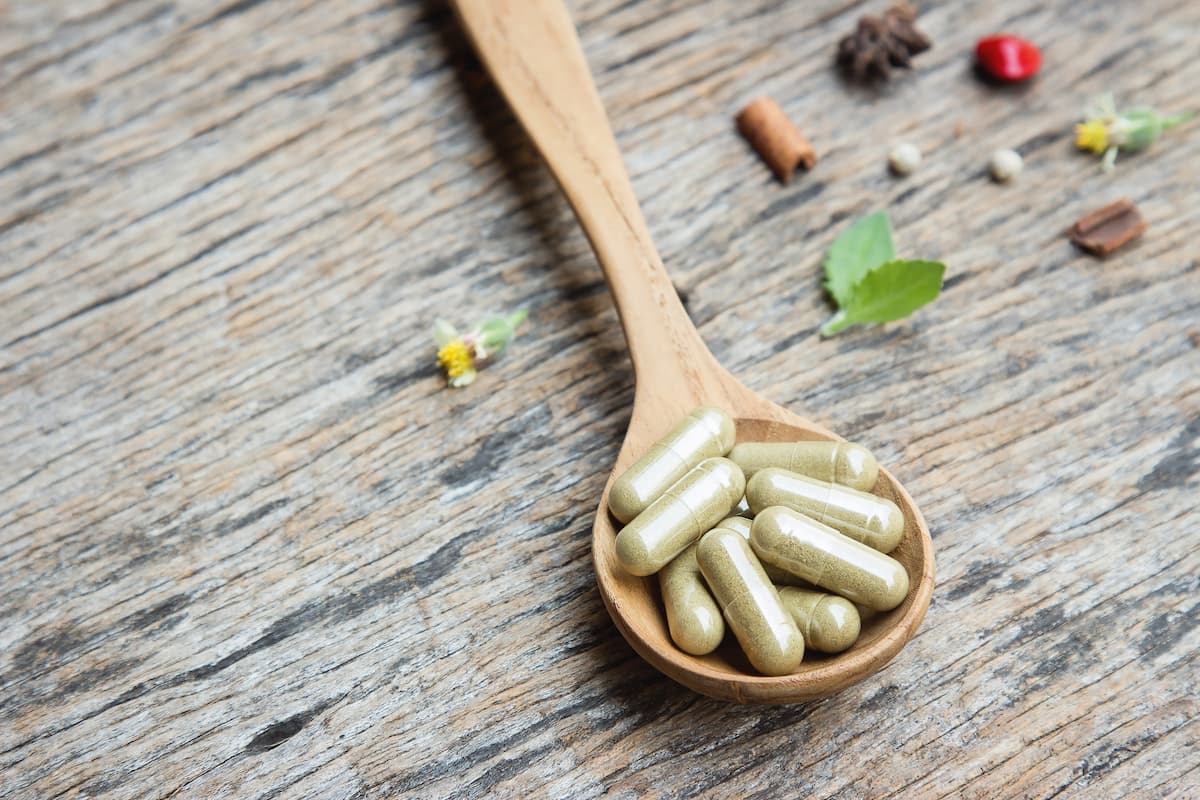
Ashwagandha affects thyroid hormone levels. Find out if you can use it.
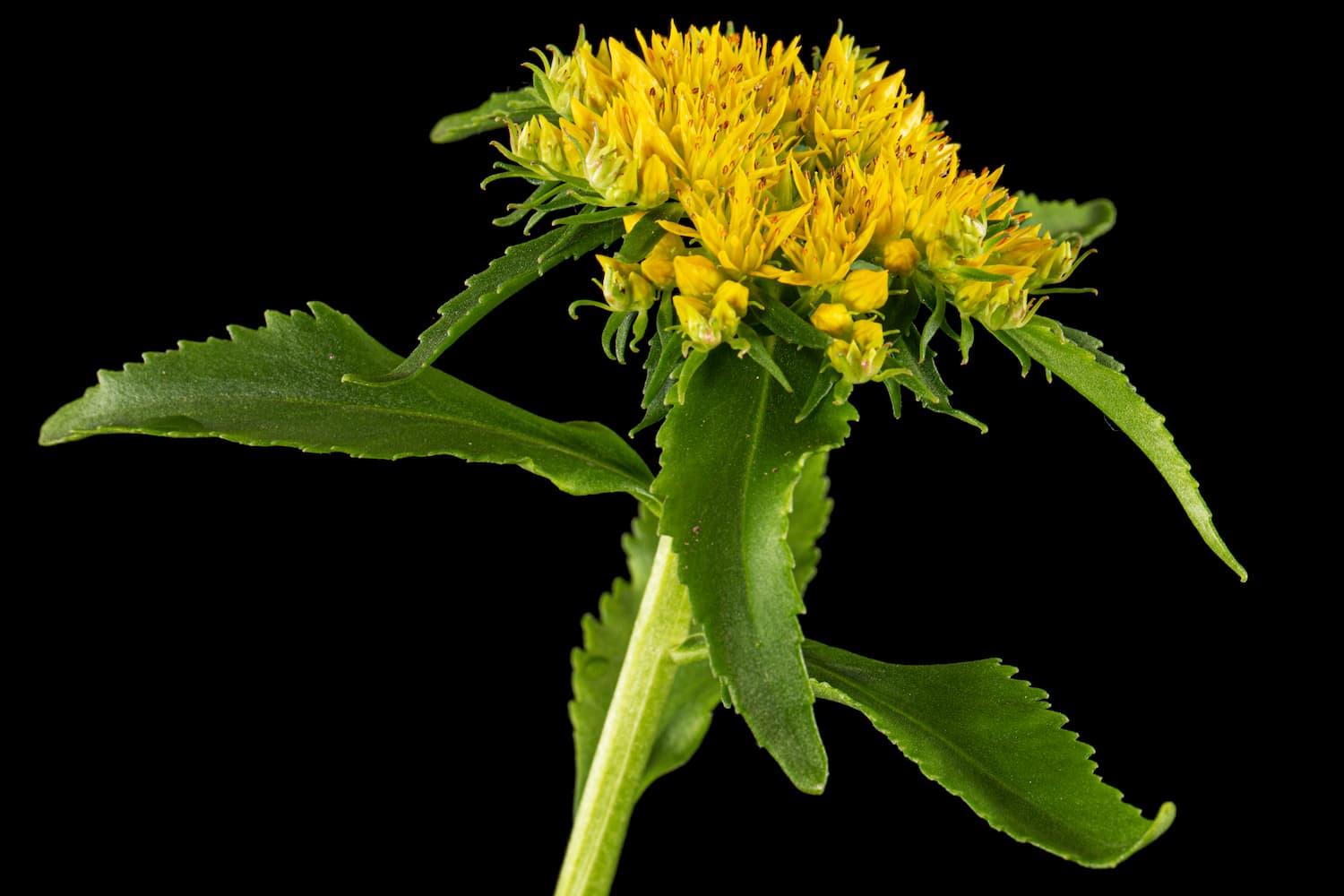
See how mountain pintail can affect your wellbeing.

Check out the opinions of doctors and other professionals about ashwagandha. Also find out what people on the forum think about it.
